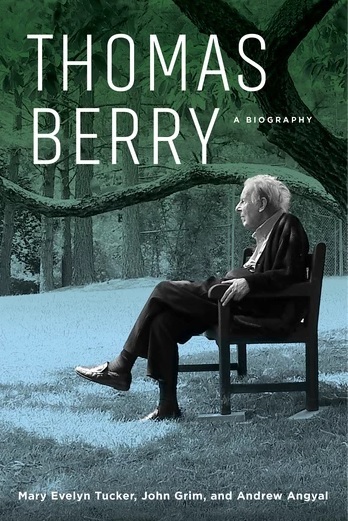By Mary Evelyn Tucker, John Grim, and Andrew Angyal
New York City, NY: Columbia University Press, 2019
Thomas Berry (1914–2009) was one of the twentieth century’s most prescient and profound thinkers. As a cultural historian, he sought a broader perspective on humanity’s relationship to the Earth in order to respond to the ecological and social challenges of our times. The first biography of Berry, this book illuminates his remarkable vision and its continuing relevance for achieving transformative social change and environmental renewal.
Berry began his studies in Western history and religions and expanded to include Asian and Indigenous religions, which he taught at Fordham University, Barnard College, and Columbia University. Drawing on his explorations of history, he came to see the evolutionary process as a story that could help restore the continuity of humans with the natural world. Berry urged humans to recognize their place on a planet with complex ecosystems in a vast evolving universe. He sought to replace the modern alienation from nature with a sense of intimacy and responsibility. Berry called for new forms of ecological education, law, and spirituality and the creation of resilient agricultural systems, bioregions, and ecocities. At a time of growing environmental crisis, this biography shows the ongoing significance of Berry’s conception of human interdependence with the Earth within the unfolding journey of the universe.
Mary Evelyn Tucker and John Grim teach at the Yale School of Forestry and Environmental Studies and the Yale Divinity School, where they direct the Yale Forum on Religion and Ecology. They worked closely with Thomas Berry for over thirty years as his students, editors, and literary executors and are the managing trustees of the Thomas Berry Foundation.
Andrew Angyal is professor emeritus of English and environmental studies at Elon University. He has also written biographies of Loren Eisley, Lewis Thomas, and Wendell Berry.
